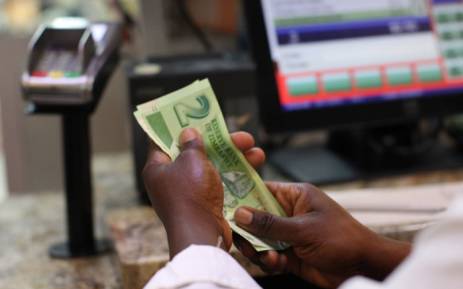Zimbabwean companies including Delta Corp Ltd. and BAT Zimbabwe Ltd. have seen their fortunes turn as cash-strapped consumers start to embrace electronic payments for goods and services.
Delta, Anheuser-Busch InBev SA/NV’s brewing operations in the southern African country, reported a 12 percent rise in lager volumes in the three months through June, the first increase since September 2015, while British American Tobacco Plc’s Zimbabwe unit posted an 8 percent profit gain in the half year through June.
Delta, also Zimbabwe’s biggest company with a market capitalization of about $1.6 billion, said the turnaround was in part due to drinkers turning to alternatives to cash to buy beer as the country battles hard currency shortages. Last year the central bank resorted to printing so-called Bond Notes, pegged to the dollar, to ease a severe shortage of cash bills or notes. Central bank governor John Mangudya said this month that Bond Notes worth $175 million have been injected into the economy.
Zimbabwe abandoned its own currency in 2009.
Meanwhile, mobile payments and internet transactions rose to $1.6 billion in May from $1.1 billion in April. Card payments increased to $602.5 million from $506 million over the same period, according to Mangudya. Meanwhile, traditional ATM transactions slumped to $39.3 million in April from $331.5 million in January 2016, The Source website reported July 11, citing research by Zimbabwean stockbroking and advisory firm IH Securities.
“E-payments have countered to a significant extent the impact of shortages of cash,” Sifelani Jabangwe, president of the Confederation of Zimbabwe Industries, said in an interview this week. “You can survive a whole month without making cash payments.”
Cash Alternatives
BAT Zimbabwe’s finance director, Lucas Francisco, said almost 90% of people are now using cards to pay for cigarettes.
Alternatives to cash include RTGS, or Real Time Gross Settlement, a type of internet banking that accounted for about $5 million in transactions in May, a 46 percent rise on the previous month. Wireless companies like Econet Wireless Zimbabwe Ltd., state-owned NetOne and Telecel also operate mobile-banking facilities, and Zimbabweans increasingly swipe bank cards at retailers because ATMs are empty.
The hard currency shortage also hit low-paid employees like farm workers, traditionally paid in cash at the end of the month. Now many receive their salaries on their cell phones because employers can’t access cash notes to meet payroll.
John Sando, who farms about 20 acres (eight hectares) of tobacco in Zimbabwe’s northern Centenary district, said his five seasonal workers receive their pay on their mobiles. He then takes the employees into town monthly so they can purchase goods – using their phones.
“What’s money? There’s no such thing as money now. It’s imaginary money,” he said. “The banks pretend they have it, we pretend to withdraw it, then we pretend to pay it out.”
Report courtesy Bloomberg











When applause travels faster than hunger